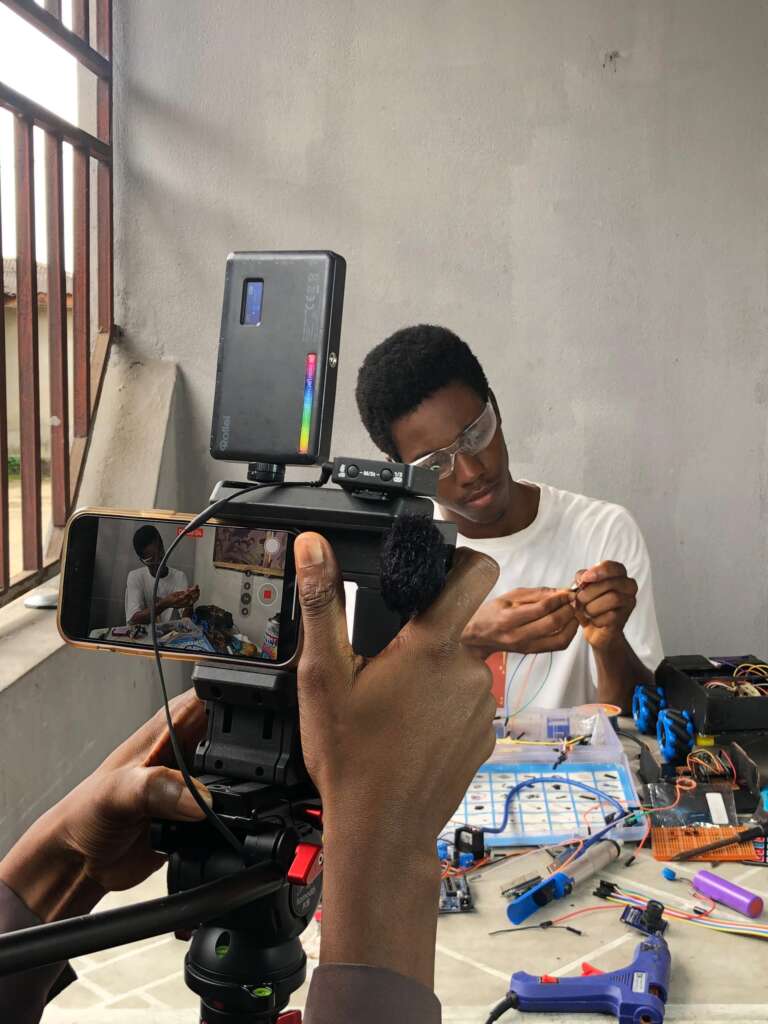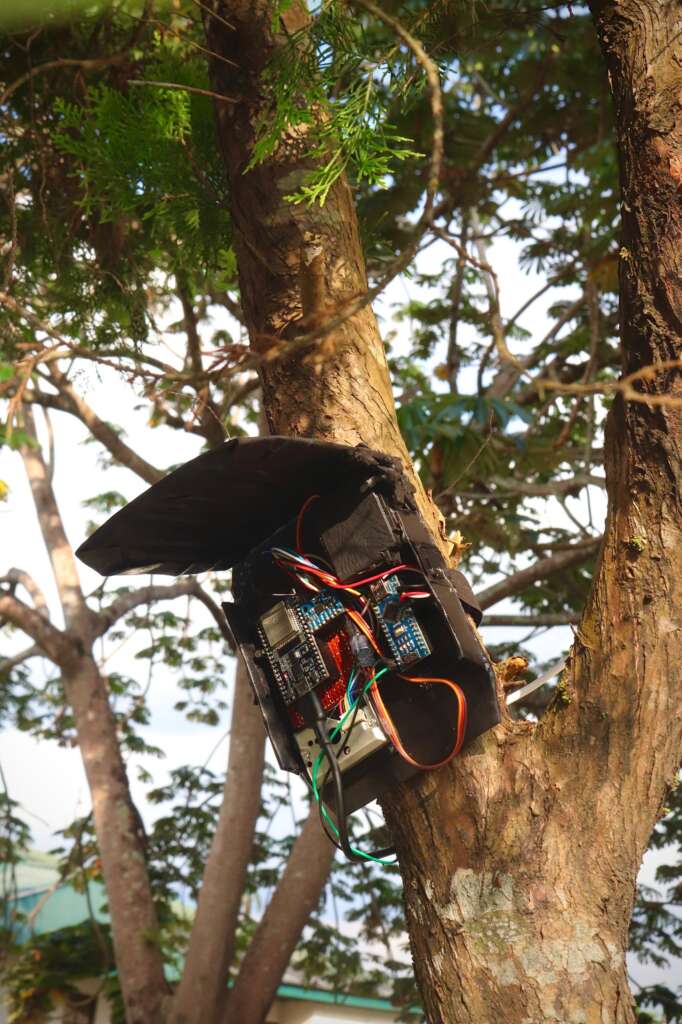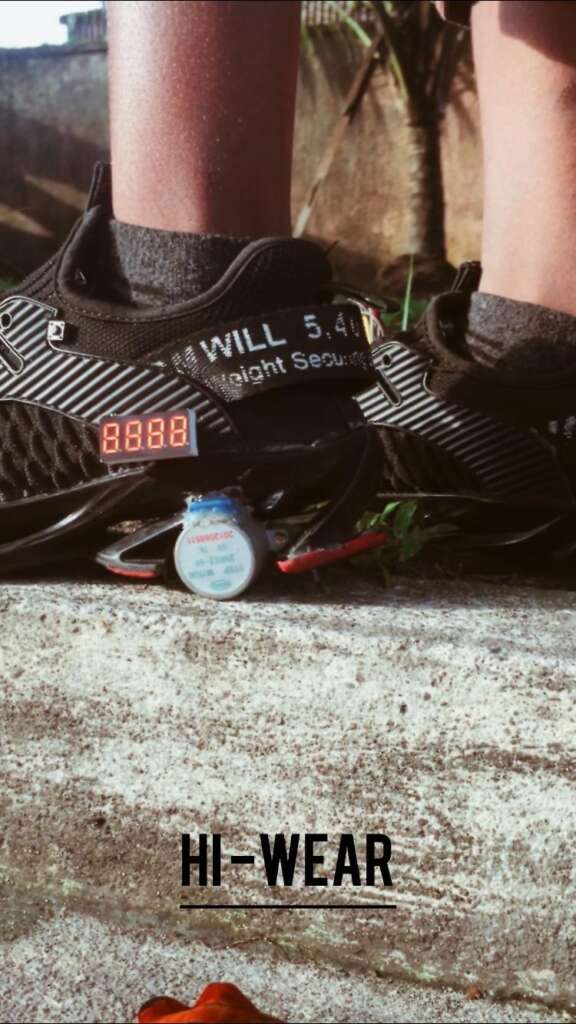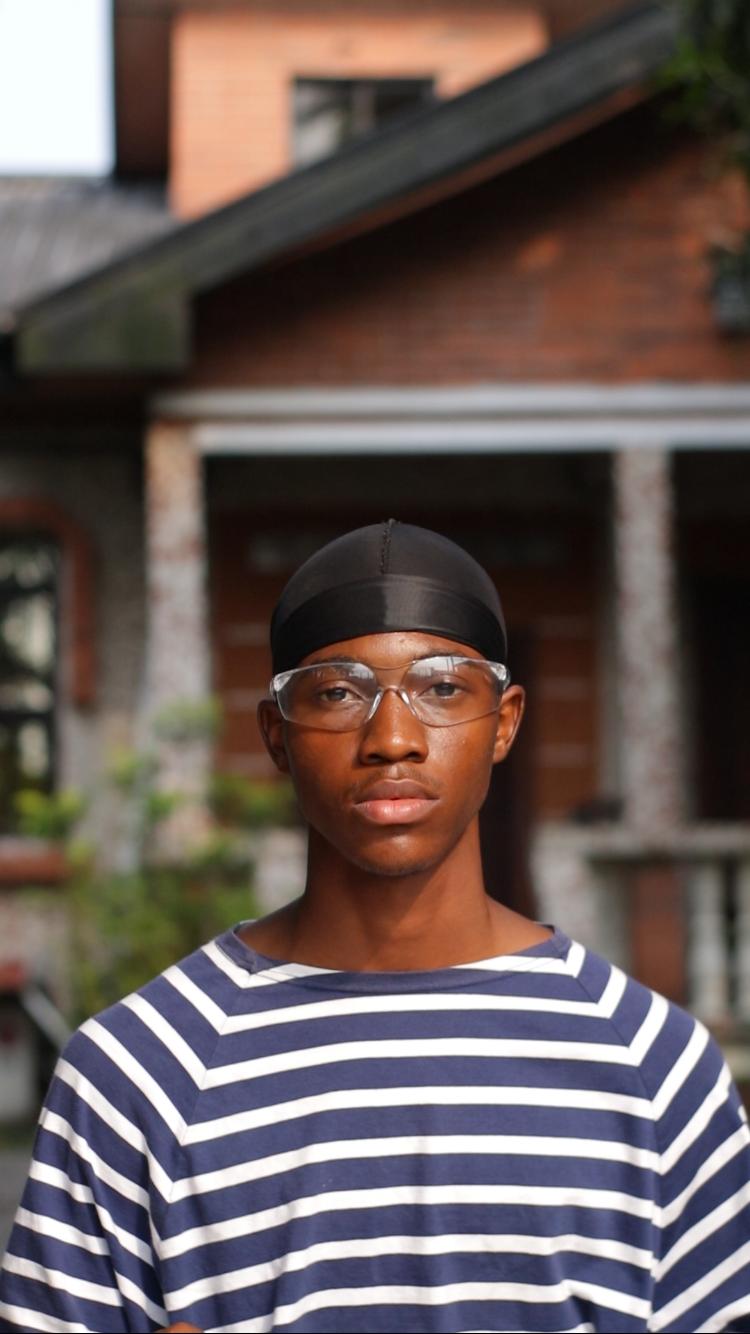At just 19 years old, Lesley John-Jumbo has emerged as a trailblazing innovator from Rivers State, Nigeria, breaking barriers in AI and embedded systems. This self-taught tech prodigy has already revolutionized the tech space with groundbreaking projects like the Smart Trash Can and Air Clicks—innovations that redefine how humans interact with technology. Lesley’s journey, marked by relentless curiosity and creativity, underscores his commitment to using tech for social impact, from gesture-controlled devices to privacy-centric solutions.
In this exclusive interview with Emmanuel Daniji of StartupsVibes, Lesley takes us behind the scenes of his journey—from saving lunch money to fund projects to navigating the complexities of hardware and software integration. Get ready for a masterclass in perseverance, imagination, and the future of Nigerian tech, as Lesley reveals his inspirations, challenges, and aspirations. Trust us, this is one story you won’t want to miss!
Background and Inspiration
What inspired you to pursue a career in robotics and hardware development instead of software, which is more common in Nigeria?
I decided to pursue a career in hardware because that has always been my passion. It’s all I breathe. I’d feel rather incomplete doing anything else.
At the end of the day, software is still involved in robotics and hardware development, so I’m benefiting from both sides.
Can you share how your strict upbringing shaped your discipline and commitment to creating innovative projects?
Well, my dad is in love with academics, and I know how much he wanted all of us, his children, to succeed. But I never liked school, even to this day. So I had to strive to be good at what I love—robotics. My mum, on the other hand, supported me with every cell of her being, and that really helped a lot.
What challenges did you face early in your journey, and how did you overcome them—especially with limited access to materials and resources?
Limited access to components was my major problem. I’d usually save for a long time to buy components. Sometimes my mum helped, and my boss helped as well.

Early Projects and Team Dynamics
Your first project, the Smart Trash Can, was a success. How did it feel to see it come to life, and what lessons did you learn from that experience?
The first project we ever built brought a huge smile to my face. I knew then that I was heading somewhere.
It was super tough, but the biggest lesson I learned from the experience was to keep trying as many times as possible.
Can you tell us more about your team, including how you met Blessed and Bright, and how you collaborate on projects?
One of my teammates was actually my seatmate in school, and Bright was my neighbor who interned at an electrical store. They were both super curious and never felt relaxed without motion.
At first, I didn’t realize they were the right teammates, but I eventually found out.
SEE ALSO: INTERVIEW: How MonitNG is Empowering Nigerian Communities with Data and Transparency
The Air Clicks was a technically demanding project. How did you manage to learn Python so quickly to make it a success?
I had a friend who was very knowledgeable about Python—he was actually a network engineer. I approached him for help, and he explained everything thoroughly. I understood it quicker than usual, and we got the Air Clicks project running.
Reforest AI and Environmental Impact
Reforest AI aims to tackle illegal deforestation. What inspired you to address this issue specifically, and how does the device work?
I watch a lot of Discovery Channel programs discussing the negative effects of climate change. Every time I participated in hackathons, there was always a climate tech category. This sparked my curiosity and led me to conduct extensive research. I saw how dangerous deforestation could be and its causes.
Reforest AI consists of modular nodes strategically placed in high-risk deforestation zones. They aren’t bulky setups; they’re sleek, solar-powered, and weather-resistant towers. Think of them as AI guardians for forests.
They use multidirectional cameras and microphones to detect chainsaw sounds or vehicle noises and thermal imaging sensors to spot humans at night.
They constantly send GPS coordinates, live video, and real-time audio to local authorities or forest rangers. Flashing lights and warning messages are emitted immediately when a threat is detected. The nodes communicate with each other in a network to create a smart forest grid. If one node detects something, neighboring hubs help triangulate the exact position.

What are the biggest technical and logistical challenges you’ve faced while developing Reforest AI?
Reforest AI is huge. Technically, it’s not an easy task, which is why I’m constantly learning all I can to make it work.
Funding the project is also a challenge, but we’re not letting that stop us. We get what we can, bit by bit.
How do you envision this project impacting the fight against climate change globally?
I envision this product playing a key role in combating illegal deforestation globally, which would, in turn, reduce the negative effects of climate change.
Funding and Community Engagement
How do you plan to secure funding for your projects while also teaching others the skills to replicate your work?
My plan is to refine this product to a point where its capabilities are undeniable, then pitch it to investors and individuals concerned about the negative effects of climate change.
I’ve developed strong time management skills to juggle multiple responsibilities effectively. Teaching people how to do what I do is not too tasking.
We’ve been getting so many requests from people interested in learning robotics, and it makes me happy to see more interest in hardware. So, we decided to open our doors to teach.
What role has community support, like your mother’s assistance or Techoville Innovations, played in your journey?
My mother’s support has been indescribable. It only makes sense that I’m doing all this for her as well.
Techoville Innovations has been a huge support. They made me believe in my vision through their encouragement, and I’m super grateful.
Future Innovations
Could you share more about the upcoming projects you’re working on for social media and their potential impact?
Future projects will be more fun and less likely something I’ll work on long-term. They’re just to create buzz around what we’re currently working on.
Your Hi-Wear project has multiple functionalities like step counting and tracking. How do you see wearable tech evolving in Nigeria?
I plan to partner with shoe brands to build on the Hi-Wear project, with a primary focus on the location tracking feature for infants and students.
Wearable technology in Nigeria is definitely evolving strongly and rapidly. I’m yet to see a properly finished and functional wearable, but that’s something we’re actively working on.

Education and Mentorship
You’ve spoken about the lack of proper robotics education in Nigeria. How are you addressing this gap through your teaching initiatives?
Yes, there’s a lack of proper education on robotics in Nigeria. From what I’ve seen, centers starting to teach robotics often forget to accompany their lessons with creativity or implementation.
I want people to see and experience my innovations and feel like children again.
Our teaching method emphasizes the concept in a way that ensures they don’t forget why they started learning in the first place. We also teach them how to be creative and think more broadly.
What advice would you give to young Nigerians interested in robotics but facing similar challenges to those you’ve experienced?
My advice to innovators in the hardware space is: don’t stop. Hardware is hard, but the rewards, if you eventually get it right, are worth it.
Joining the hardware space in Nigeria is like being on a burning ship—you either make it or fail.
But when I see hardware companies in Nigeria like Terrahaptix and Acecore, I feel hopeful.
Robotics and Nigeria’s Tech Landscape
How do you see robotics and embedded systems shaping Nigeria’s tech ecosystem in the next decade?
In the next decade, robotics and embedded systems will significantly shape Nigeria’s tech ecosystem.
Many software developers initially wanted to pursue hardware but were deterred by its challenges—no guidance, no money to source components, and no community support due to the small number of hardware enthusiasts in the country.
However, with the emergence of groundbreaking hardware companies and better educational standards, more people will venture into hardware.
Do you believe Nigeria has the infrastructure to support a thriving hardware innovation space, and what improvements are needed?
Nigeria has the infrastructure to support thriving hardware innovation, but the country isn’t ready yet.
We’re still trying to tackle poverty and hunger, and adaptability to new systems here is extremely challenging. The country needs more time to develop in this area.
Personal Growth and Philosophy
What drives your passion for creating tangible products, and how do you balance the financial and time demands of hardware development?
Passion is my primary drive. Passion and discipline fuel my work in hardware development—it’s my purpose.
When it comes to balancing financial and time demands, there’s really no balance for me. All my time and money go into my craft, and I can’t slow down because I need constant momentum to make this work.

How do you stay motivated and innovative despite the stress and challenges associated with hardware projects?
Despite the stress and challenges, I stay motivated because this is my ikigai—a Japanese concept that refers to a person’s reason for living or purpose.
It’s what I love, what I’m good at, what I can be paid for, and what the world needs.
Vision and Legacy
What’s your ultimate goal as a robotics engineer, and how do you want to be remembered in the field of technology?
My ultimate goal as a robotics engineer is to learn more about myself and inspire others.
I want to be remembered as someone who saved the Earth from the verge of global warming and destruction caused by the negative effects of climate change, and as a major motivator for builders to get things done.
Are you a business owner or startup founder with a story to tell? We’d love to shine the spotlight on you! Join the ranks of trailblazers and share your journey with the vibrant StartupsVibes audience. Reach out to emmanuel@hera.marketing today, and let’s craft a feature that inspires, connects, and elevates your brand.




